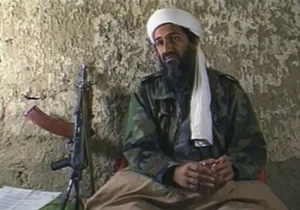When the Nigerian government initiated the release of abducted schoolgirls from the terrorist group Boko Haram last February, one of the girls, the only Christian, was left behind because she refused to convert to Islam. This has resulted in a loud outcry from Nigerians.
In Islam, the Shahada is a statement also known as the testimony of faith. Once you say it out loud, it is believed you have become a Muslim. It was this statement Leah Sharibu, 15, was told to utter by the terrorist group Boko Haram before she could board the truck that would take her and 104 others home.
Leah’s mother, Rebecca Sharibu, recounted the ordeal that landed her daughter in captivity: “Our daughter refused.” The other girls, who were all Muslims, cried and called out, “Come Leah, come! We’ll teach you!” But Leah replied, “It isn’t my religion. I will not.” The insurgents then said to her, “Since you will not say the words, it’s the Muslims we will be returning home. You will remain here.” Leah replied, “So be it. I will stay here. Even if I will be killed, I will not accept your religion. It isn’t mine.”
On February 19, Boko Haram stormed Government Girls Technical Science College, Dapchi, in Yobe State in northeast Nigeria and whisked away 110 schoolgirls. When they were returned after negotiations by the federal government, five were reported dead, and one, Leah, was still in captivity because she was a Christian.
This is not the first time Boko Haram has kidnapped schoolgirls. After all, its name, translated from Hausa, means “school is sin.” Years ago, they kidnapped over 200 schoolgirls in Chibok, Borno State (also in northeast Nigeria), the majority of whom were Christians. So far, the Muhammadu Buhari-led government has been reported to have facilitated the release of over 80 of them.
Leah’s mother, a primary school teacher, fainted when she got the news that her daughter wasn’t among the girls released. But days later she said proudly, “We were really happy that our daughter refused to convert to Islam.”
Nathan Sharibu, her husband and a 45-year-old police inspector, said he was initially sad but drew courage from the fact his daughter would not deny Christ.
The Sharibus have only two children, Leah and her 13-year-old brother, Donald, who are both in senior secondary school.
Distrust
The inability of the Nigerian government to negotiate the release of Leah alongside the other 104 girls has sown a seed of distrust among citizens, particularly Christians. Many have criticized a video showing residents of Dapchi cheer for the terrorist group when it returned the abducted girls. So, there is serious suspicion that the government is gradually empowering Boko Haram, even as the terrorists wage war on the people.
Professor Farooq Kperogi, a columnist with Daily Trust, one of Nigeria’s most widely read newspapers, has put forth arguments to support this in his piece on March 24. On the release of the Dapchi schoolgirls, he pointed out that “the financial negotiations that led to their release would strengthen Boko Haram to launch more daring abductions of schoolgirls. It’s not a question of if, it’s a question of when. This is a vicious cycle.”
In a report on March 21, Sahara Reporters, another media source, revealed that “contrary to the claims of two ministers of President Muhammadu Buhari, a handsome ransom of five million euros was paid to Boko Haram to secure the release of Dapchi girls freed by the insurgents.”
This is in addition to Boko Haram fighters in the custody of the Nigerian military being exchanged for the release of the girls.
This information was gathered from a source who also participated in the negotiations with Boko Haram that led to the release of over 80 Chibok girls in 2017. The report had substantiated that this had been the method used to secure “freedom of abductees, especially since the advent of the Buhari administration.”
According to Kperogi, “Boko Haram is now better financed by the Nigerian government than our military is.” He also pointed out that the insurgents are “now being unwittingly lionized, deodorized, decriminalized, and mainstreamed by the government.”
The Church
In Dapchi, Leah’s family attends the Evangelical Church Winning All (ECWA). The local assembly is probably the most affected by her abduction. When the girls were abducted, the members prayed and fasted. “We are still praying even at this moment and wouldn’t stop until we see her,” the church’s minister, Reverend Daniel Auta, said, adding that the Muslims in Dapchi, who are the majority in the town, are also saddened by the incident.
When the church heard Leah’s refusal to convert to Islam, there was a celebration in ECWA. “We were happy that she didn’t shame Jesus. The news comforted us,” Auta said, adding that Leah asked the other girls to tell her father to pray for her. “Her father said even if his daughter dies, he is grateful to God that she didn’t deny Jesus Christ.”
The then-president of ECWA in Nigeria, Rev. Dr. Jeremiah M. Gado, said the Evangelical Church received details of the Dapchi schoolgirls’ abduction, especially in reports of the withdrawal of security operatives soon before the incident, with sadness and great shock.
“Most shocking to ECWA, of which Leah is a member, and the generality of Christians in Nigeria and worldwide, is the fact that the federal government of Nigeria confessed to have secured and accepted release of all 104 Muslim girls abducted from Dapchi,” Gado said. “They left out Leah Sharibu, who was the only Christian among the abductees. As of April 2, Leah was still allegedly being held by Boko Haram since February 19, for her refusal to deny her faith in Jesus Christ and to convert to Islam. I recall that most of the schoolgirls also abducted by Boko Haram four years ago, on April 14, 2014, are Christians, with the majority of them still in captivity to date.”
Gado pointed out that the Nigerian government understood the great danger it was leading Nigerians into by negotiating and accepting the release of all 104 Muslim girls without the only Christian among them. He called on all Christians to beware, be well-rooted in the Bible, remain resolute, and serve God uninhibited. Gado said:
The global Christian community applauds Leah Sharibu and her refusal to deny her faith even in the face of most certain deprivation, loneliness, possible violation of her total person, and death. Leah’s case is strengthening Christians in Nigeria to stand firm in the face of stepped-up persecution of the body of Christ. The church, especially in the northeast, and all of northern Nigeria, has continued to face unabated and multifaceted persecutions.
Gado also called on the international community and all peoples of conscience to call on President Muhammadu Buhari’s government to secure the release of “this prisoner of conscience, Leah Sharibu, and the remaining Chibok girls unconditionally and immediately. I call on them to lend their voices and do the necessary in order to stop the ongoing discrimination against Christians in Nigeria and the massacre of Nigerians in Nigeria.”
Meanwhile, the Christian Association of Nigeria (CAN), led by its president, His Eminence, Rev. Dr. Samson Olasupo Ayokunle, said just as the government initiated the release of the Dapchi girls, so they are hoping Leah will be freed.
Earlier in a press statement signed by his special assistant, Pastor Adebayo Oladeji, Ayokunle called on all churches in the country to pray for Leah. Christians nation-wide were also asked to pray at noon on Good Friday for her deliverance.
Before the girls were released, CAN stated that the incident “has exposed the dark sides of the government of President Muhammadu Buhari.” The body additionally “called on the federal government to interrogate the entire security apparatus in Nigeria with intent to detect moles and possible collaborators among the officers”.
On social media and other platforms, groups and individuals continue to campaign for the release of Leah. Daily Post also reported that Vice President Yemi Osinbajo assured Nigerians at a concert in commemoration of the Easter celebration in Lagos that Leah will soon regain her freedom.
—
Nathaniel Bivan is a writer, journalist, and CEO of Room Three Press, a Christian publishing company. Based in Abuja, Nigeria, he is the author of a children’s picture book titled Flower Blind, published in English and Hausa by African Storybook.
Photo Credit: Women and children hostages of Boko Haram after being delivered to the Nigerian army in 2015. By Voice of America, via Wikimedia Commons.






 Sponsor a student for Christianity & National Security 2024
Sponsor a student for Christianity & National Security 2024